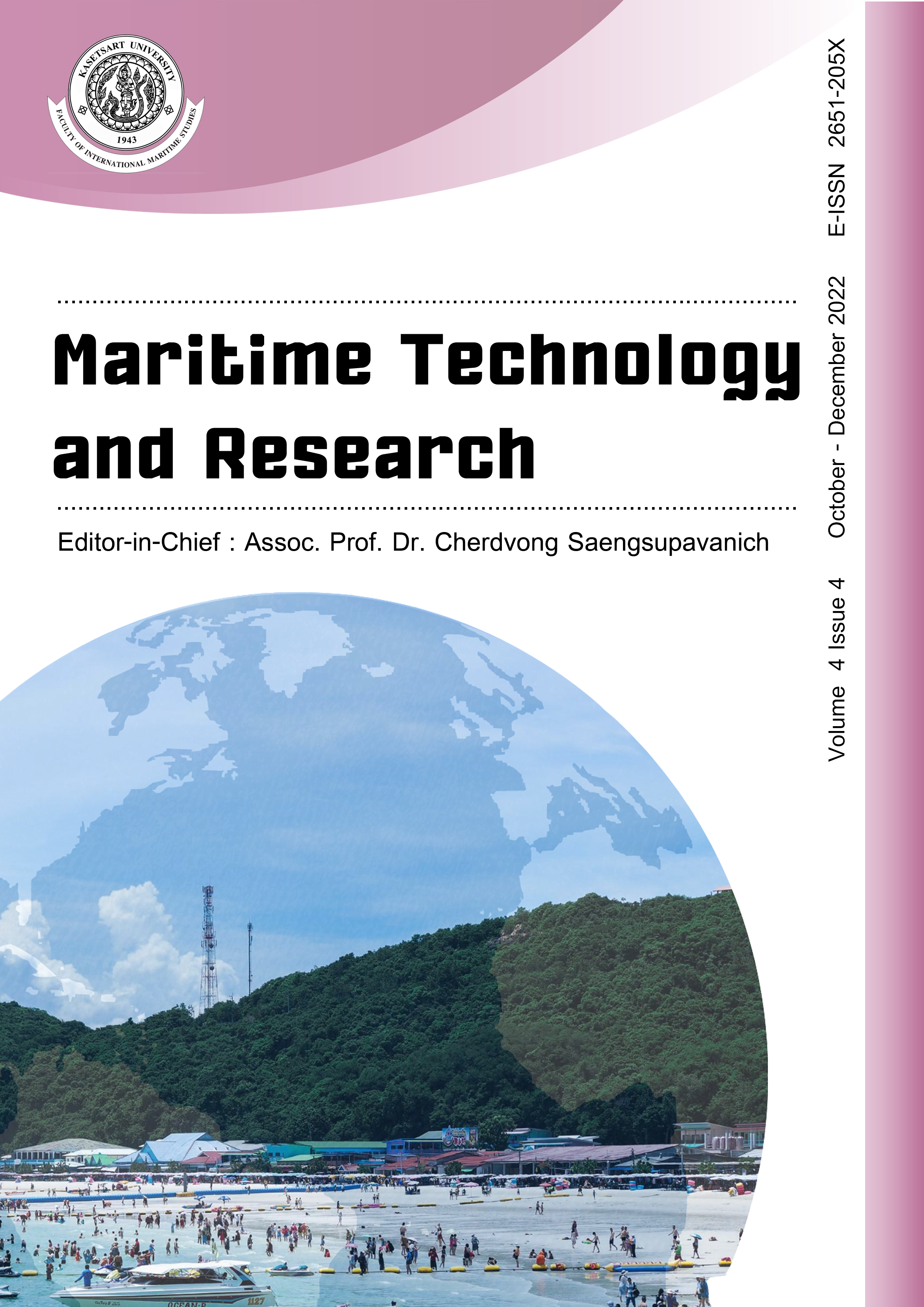Are cruise cost factors affected by the place and the size of the cruise company?
DOI:
https://doi.org/10.33175/mtr.2022.257243Keywords:
Cruise, Cruise industry, Cost factors, Cruise company, Analytic Hierarchy Process, MediterraneanAbstract
The aim of this study is to investigate the factors that affect and influence the cost of a cruise company, within the frame of different cruise ship sizes and operations in dissimilar geographic areas. For the purposes of this research, a small (deluxe) cruise company (SCC), offering specialized programs, and a larger (mass) cruise company (LCC), headquartered in Greece and operating in the East Mediterranean, are compared; two similar types of companies, headquartered in Italy, and operating in the Central Mediterranean, were selected for a comparison study. The methodology applied is the Analytic Hierarchy Process (AHP). Our study argues for the significance of cruise ship size and the cruise operation area to the general cost of a cruise ship, as well as to differentiations on specific cruise factors. Financial cost is the major driver for the total cost for SCCs, as well as for LCCs, in both countries. For instance, a shipping company could decide whether to operate in a specific market, based on destination selection with the specific cost factors, and which size of cruise ship could minimize certain cost components for the vessel and, eventually, for the cruise itinerary and the company. The results have significant implications for cruise ship management and operations, but also contribute to the limited existing literature.
------------------------------------------------------------------------------
Cite this article: Diakomihalis, M., Diakomichalis, N.-M. (2022). Are cruise cost factors affected by the place and the size of the cruise company? Maritime Technology and Research, 4(4), 257243. https://doi.org/10.33175/mtr.2022.257243
------------------------------------------------------------------------------
References
CLIA. (2018). The contribution of the international cruise industry to the global economy in 2018, report, Cruise line international association, Miami, Florida.
CLIA. (2019). Cruise trends industry outlook, report, Cruise line international association, Miami, Florida.
CLIA. (2020). State of the cruise industry outlook, report, Cruise line international association, Miami, Florida.
Cruise Market Watch. (2020). Statistics. Retrieved from http://www.cruisemarketwatch.com
Diakomihalis, M., Stefanidaki, E., & Chytis, E. (2016). Cruise ship cost analysis: An AHP study on cost components. International Journal of Decision Sciences, Risk and Management, 6(3), 265-280. http://dx.doi.org/10.1504/IJDSRM.2016.079792
Diakomihalis, M., & Stefanidaki, E. (2011). Cruise ship supply chain: A field study on outsourcing decisions. International Journal of Decision Sciences, Risk and Management, 3(3/4), 369-383. http://dx.doi.org/10.1504/IJDSRM.2011.046162
Diakomihalis, N. M. (2007). The impact of maritime tourism on the Greek economy via the tourism satellite account. Tourism and Hospitality Planning & Development, 4(3), 231-243. https://doi.org/10.1080/14790530701783640
Diakomihalis, N. M., Lekakou, M., Syriopoulos, T., & Stefanidaki, E. (2009). The economic impact of the cruise industry on local communities: The case of Greece. In Proceedings of the 4th International Conference of the Aegean University, Rhodes, Greece.
Cullinane, K. P. B., & Khanna, M. (2000). Economies of Scale in large containerships: optimal size and geographical implications. Journal of Transport Geography, 8, 181-195. http://dx.doi.org/10.1016/S0966-6923(00)00010-7
Guy, E., & Urli, B. (2006). Port selection and multicriteria analysis: An application to the Montreal-New York alternative. Maritime Economics and Logistics, 8(2), 169-186.
KeyNote. (2018). Cruise market. KeyNote. Retrieved from https://www.keynote.co.uk/content/market-reports-0
Lekakou, M., Stefanidaki, E., Bras, I., & Vintzilaios, D. (2014). Information-Knowledge-Experience; Heraklion: A “brand new” traditional cruise destination. In Proceedings of the 5th International Cruise Conference, Bremerhaven.
Lirn, T. C., Thanopoulou, H. A., Beynon, M. J., & Beresford, A. K. C. (2004). An application of AHP on transshipment port selection: A global perspective. Maritime Economics and Logistics, 6(1), 70-91. http://dx.doi.org/10.1057/palgrave.mel.9100093
McKinsey. (2020). Consumer sentiment and behavior continue to reflect the uncertainty of the COVID-19 crisis. Retrieved from https://www.mckinsey.com/business-functions/marketing-and-sales/our-insights/a-global-view-of-how-consumer-behavior-is-changing-amid-covid-19
Nagarajan, S. (2020). Carnival has its credit rating slashed as its return to the seas is likely crippled by anuptick in COVID-19 cases. Retrieved from https://markets.businessinsider.com/news/stocks/carnival-loses-investment-grade-rating-after-uptick-covid19-cases-2020-6-1029336911
Papathanassis, A., & Beckmann, I. (2011). Assessing the “poverty of cruise theory” hypothesis, Annals of Tourism Research, 38(1), 153-174. http://dx.doi.org/10.1016/j.annals.2010.07.015
Richter, H. (2020). Cruising post-COVID-19: Lessons and challenges for the cruise ship industry, report, Sustainalytics, a Morningstar Company. Retrieved from https://www.sustainalytics.com/esg-blog/cruising-post-covid-19-lessons-and-challenges-for-the-cruise-ship-industry
Rodrigue, J. P., & Notteboom, T. (2013). The geography of cruise shipping: Itineraries, not destinations. Applied Geography, 38, 31-42. http://dx.doi.org/10.1016/j.apgeog.2012.11.011
Royal Caribbean Cruises & Carnival Corporation and PLC. (2018). NCL corporation Ltd., Cruise Lines, International Association (CLIA), The Florida-Caribbean Cruise Association (FCCA) and DVB Bank. Retrieved from https://cruisemarketwatch.com/financial-breakdown-of-typical-cruiser
Saaty, T. L. (1977). A scaling method for priorities in hierarchical structures. Journal of Mathematical Psychology, 15, 234-281. http://dx.doi.org/10.1016/0022-2496(77)90033-5
Saaty, T. (1980a). Multicriteria decision making: The analytic hierarchy process. Mc Graw-Hill, New York.
Saaty, T. L. (1980b). The analytic hierarchy process. McGraw-Hill, New York.
Saaty, T. L. (1997). That; is not the analytic hierarchy process: What the AHP is and what it is not. Journal of Multicriteria Decision Analysis, 6(6), 324-335. http://dx.doi.org/10.1002/(SICI)1099-1360(199711)6:6%3C324::AID-MCDA167%3E3.0.CO;2-Q
Saaty T. L. (1999). The seven pillars of the analytic hierarchy process. ISAHP, Kobe Japan.
Stefanidaki, E., & Lekakou, M. (2012). Liberalization assessment: The Greek cruise market. Tourism, 60(1), 91-105.
Stopford, M. (2013). Maritime economics (3rd eds.). Routledge Taylor & Francis Group, London and New York. http://dx.doi.org/10.4324/9780203442661
Syriopoulos, T., Tsatsaronis, M., & Gorila, M. (2020). The global cruise industry: Financial performance evaluation. Research in Transportation Business & Management. https://doi.org/10.1016/j.rtbm.2020.100558
Syriopoulos, T., & Bakos, G. (2019). Investor herding behaviour in globally listed shipping stock returns. Maritime Policy & Management, 46(5), 545-564. http://dx.doi.org/10.1080/03088839.2019.1597288
The Florida-Caribbean Cruise Association (FCCA) and DVB Bank. (2020). Financial breakdown of typical cruiser. Retrieved from https://cruisemarketwatch.com/financial-breakdown-of-typical-cruiser
Ugboma, C., Ugboma, O., & Ogwude, I. C. (2006). An analytic hierarchy process (AHP) approach to port selection. Decisions-empirical evidence from Nigerian ports. Maritime Economics and Logistics, 8(3), 251-266. https://doi.org/10.1057/palgrave.mel.9100160
UNWTO. (2020). Impact of COVID-19 on global tourism made clear as UNWTO counts the cost of standstill. UNWTO Report. Retrieved from https://www.unwto.org/news/impact-of-covid-19-on-global-tourism-made-clear-as-unwto-counts-the-cost-of-standstill
Vaggelas, G. K., & Pallis, A. A. (2010). Passenger ports: Services provision and their benefits. Maritime Policy and Management, 37(1), 73-89. http://dx.doi.org/10.1080/03088830903461209
Vogel, M., Papathanassis, A., & Wolber, B. (2012). The business and management of ocean cruises. USA: CABI. http://dx.doi.org/10.1079/9781845938451.0000
Wong, P. C., Yan, H., & Bamford, C. (2008). Evaluation of factors for carrier selection in the China Pearl River delta. Maritime Policy and Management, 35(1), 27-52. https://doi.org/10.1080/03088830701848854
Downloads
Published
Issue
Section
License
Copyright (c) 2022 Maritime Technology and Research

This work is licensed under a Creative Commons Attribution-NonCommercial-NoDerivatives 4.0 International License.
Copyright: CC BY-NC-ND 4.0








